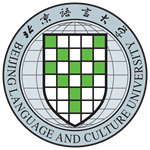Those completing the MA (Mandatory Qualification) will need to complete all the above modules (worth 20 credits each) and a dissertation worth 60 credits. Those completing the MA in Deaf Education will study the same modules as in the MA mandatory qualification programme but will not undertake the ‘Effective Teaching of Learners with Sensory Impairment’ module which includes teaching placement. Instead, in the summer term of the second year will take the 'Inclusion: Universal and Specialist Approaches' module.
Unless indicated otherwise, these modules are for students starting in 2023.
Communication and Language Development
This module will examine language and its acquisition and will establish this in the context of the educational, developmental and audiological needs of deaf children, their parents and teachers. It aims to develop your understanding and skills in order that you may facilitate optimum language development in deaf children and young people. The areas covered include: expressive and receptive use of language, development of spoken language of deaf children., development and linguistics of sign language, assessment of language, language interventions and different aspects of children’s development and language.
Policy and SEND Professional Identity
This module has been designed to enable you to relate your experience to the overall developments in provision for children and young people with sensory impairment at both regional and national levels. A key emphasis will be on roles and responsibilities within the context of inclusion and the changing role of the specialist teacher and other professionals.
Audiological Management
On this module, you will consider issues related to the science of audiology and its application in the educational and developmental management of deaf children and young people.
It aims to develop your skills in order to facilitate efficient audiological management of deaf children. The areas covered include: anatomy and physiology; causes of deafness and types of hearing loss; the assessment and diagnosis of hearing loss in children; personal hearing technologies (hearing aids and cochlear implants), functional use of hearing, room acoustics and the use of assistive listening devices.
The Development of Deaf Children
On this module you will develop an understanding of the effect of deafness on the child and the family. The module discusses the impact of diagnosis, and considers family life, social and cognitive development, and those deaf children with additional disabilities. The concept of deafness and disability will also be examined.
Curriculum Access for Deaf learners
The module explores the range of pedagogical approaches, strategies and resources (people and material) which can be utilised effectively to facilitate optimal engagement, inclusion and attainment based on current assessment and evaluation of deaf individuals in a range of settings. It will also focus on how assessments for deaf children can be interpreted and effectively communicated to parents and other professionals to ensure that appropriate individualised technologies, resources and strategies are in place to optimise deaf learners’ engagement, inclusion and attainment.
Effective Teaching of Learners with Sensory Impairment (Additional module for the PGDip Mandatory Qualification)
The module has a focus on practical skills across all standards and includes teaching placement. The aim of this module is to enable you to meet outcomes that can only be acquired, developed, and demonstrated within the classroom. The teaching placement, will provide a valuable opportunity for you to develop as a reflective practitioner. You will be observed by a colleague who works with learners with sensory impairment.
The module will include:
a sustained period of teaching practice (15 days) to practise special skills teaching, receive feedback and assessment. You will be appointed a teaching placement supervisor and the assessment will be based on the standards;
reflective comments on visits to a range of settings/organisations with relevant foci e.g. clinics, schools, technology companies, therapy sessions;
a ‘portfolio’ in which you present evidence of a range of relevant skills linked to the standards, including workplace evidence (e.g. specialist assessment, multi-agency working, working with families);
a summative assignment.
You will undertake the teaching practice in a setting other than your own place of work to gain a fuller picture of provision.
Inclusion: Universal and Specialist Approaches (Additional module for the MA in Deaf Education only)
This module will consider the broad universal-specialist dimension and how this fits in inclusive of educational practice.
Key areas of curriculum, teaching strategy, educator knowledge, assessment and educational placement will be broadly mapped and you will be presented with analyses and evidence in relation to different SEND groupings as example case studies (as conceptualised in many educational systems), e.g. Autism, dyslexia, hearing impairment / deafness, emotional and behavioural difficulties, MSI, PMLD, SLD, vision impairment. The analyses form introductions to key aspects of these different groups (in relation to curriculum, pedagogy and educator knowledge), which also provide examples of broader inclusion debates, dilemmas, positions and solutions.
Please note: The modules listed on the website for this programme are regularly reviewed to ensure they are up-to-date and informed by the latest research and teaching methods. On rare occasions, we may need to make unexpected changes to compulsory modules; in this event we will contact offer holders as soon as possible to inform or consult them as appropriate.
Show less









